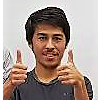What is Human Library? Watch this 3 minute video.
The Human Library, an idea originally from Denmark, is a special kind of library where the books being shared are humans. You can listen to the human book’s experiences, usually on a theme. You can ask questions that have been lingering in your head for some time, but could be too ‘embarrassing’, ‘silly’ or ‘rude’ to ask on other occasions. The Human Library aims to foster understanding among individuals from different cultures, e.g., ethnicity, religion, country of origin, social class, political and sexual orientations.
What our participants say:

Dulanga Jayawardena from Sri Lanka
Last semester, I had a chance to interact with a book from the human library. He’s from a different city of the same country I’m from. It shocked me how different some things are in the city compared to my own. Even the word they use to say ‘hello’ was something that I thought had died out ages ago. So human libraries can open our eyes to cultures we think we don’t care about or we just don’t know about.

Nasimjon Madmurodov from Tajikistan
The one thing I like about Human Library is that it gathers students from different cultures, traditions and socio-economic backgrounds. This activity allows students to interact with one another openly in areas of their own choosing. It encourages them to share their thoughts about how they understand other cultures.
Our invitation to you:
Join us in two double-period classes in which the Human Library will be held. It is a part of ELTU3503 Intercultural Communication Through English and intended to be a safe space for open conversations. Share your stories and also explore others’ experiences. You’ll receive gifts in the form of note cards and know the impact your words or ideas have on ‘readers’.
Details:
Time and venue: Sign up for either option below
- 2:30-4:15pm on BOTH Feb 10* and Mar 16^ (Mon)
- 12:30-2:15pm on BOTH Feb 11* and Mar 17^ (Tue)
Tentative themes:
*Cultural identities: e.g. How do you see yourself? How do other see you?
^Cultural dimensions: e.g. How is power perceived in different cultures?
Benefits for you:
- Create and open and honest conversations with students from other cultures
- Record the activity in your Student Development Portfolio (SDP)
Requirements:
- Keen to share your feelings and perspectives and ask questions when unsure
- Comfortable with being asked difficult questions about your cultures/subcultures, personal experiences and identities
- Accepting of ambiguity (e.g. not knowing what exactly you may be asked!)
Venue: To be confirmed
Sign up here:
Register
What to expect:
You will meet other ‘books’ and 4 groups of Hong Kong students (4-5 in each), each for 15 mins. We will finish before 4:15pm on Monday and 2:15pm on Tuesday.
We tend not to introduce you, e.g., we don’t tell students where you’re from, even if we know. Please let us guess and find out for ourselves. You could perhaps ask what’s behind the guesses. It’d be interesting to see what assumptions we have. But let’s keep the guessing game under one minute.
You’ll be given some questions before coming to the Human Library. You can rely on your gut reactions to these questions. But if you want to think them over, that’s fine too. We have to play it by ear, as we don’t know what questions or reactions there will be from ‘readers’. The discussions may go off topic or take an unexpected turn!
You could ask questions too, especially probing ones (how and why). For example, how would such behavior be seen in your college/town? Why is it seen that way? What do you mean by ‘cool’, ‘powerful’? Asking for clarification and elaboration is very much appreciated.
You may also assume unequal English language proficiency. Perhaps slow down your usual speech rate, offer guesses when you’re not sure, write out words that seem to cause confusion? Please bear with some silence. It may mean ‘I’m thinking and putting together my sentence.’
If you feel uncomfortable with any question, feel free not to answer it. You could instead take the opportunity to find out what may have motivated such a question.
Enquiries: Dr. Fun Liu at ngarfunliu@cuhk.edu.hk

